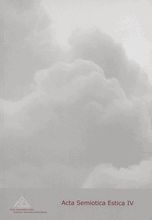Mis teeb taimest ravimtaime?
What makes a plant the medicinal plant
Author(s): Renata SõukandSubject(s): Semiotics / Semiology
Published by: Eesti Semiootika Selts
Keywords: Estonian ethnomedicine; medicinal plants; relation between the plant and the disease; name of the plant; Eesti rahvameditsiin; ravimtaimed; seos haiguse ja taime vahel; taimenimetus
Summary/Abstract: Potential medicinal plants of Estonian ethnomedicine make one third of all local flora. The present paper seeks an answer to the question: what makes a plant the medicinal plant? The subject of this analysis is the material collected at the end of the 19th century that came as an answer to the folklorist Jakob Hurt’s appeal from 1888 to collect local folklore. The data is first analysed according to the division made by the Finnish folklorist Ilmari Manninen, in which he suggests that Estonian folk medicine is based on three principles: the similarity of the plant to the disease, the relation between the origin of the plant and disease, and the potency of medicine. However, these principles cover less than half of the texts on Estonian herbal folk medicine. It appears that the first two categories of I. Manninen have a remarkable overlap with the first two sign categories of American semiotician Charles Sanders Peirce (e.g. origin of plant = index, and similarity = icon) and the third category fits in with the concept of symbol of Ch. S. Peirce. Still, the symbolic relation allows including also such subcategories as the name of the plant and texts where the described contact with human body is insufficient to achieve biological effect. The performed analysis shows that unlike the herbal folk medicine described by I. Manninen, the Estonian herbal folk medicine of the 19th century relies on a tradition that reflects the cultural concepts held with regard to the plant and not to its origin or its physical similarity to the disease.
Journal: Acta Semiotica Estica
- Issue Year: 2007
- Issue No: 4
- Page Range: 160-174
- Page Count: 15
- Language: Estonian

